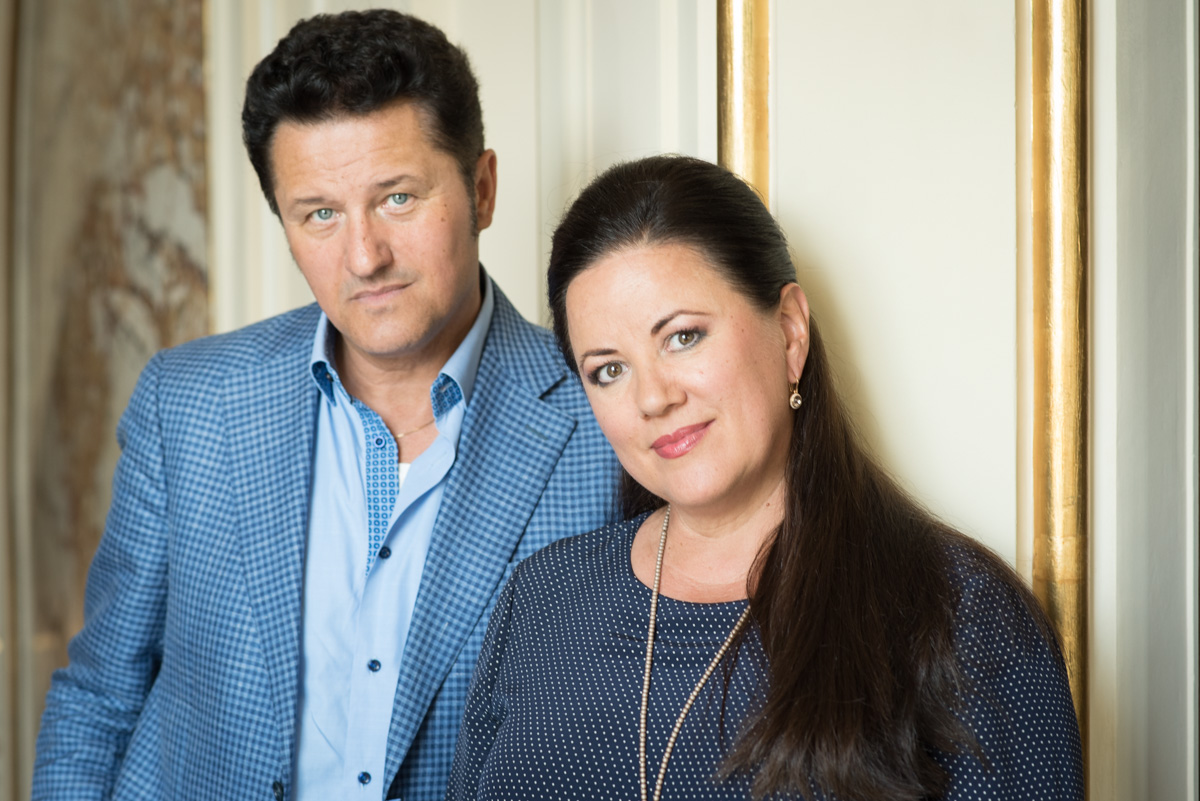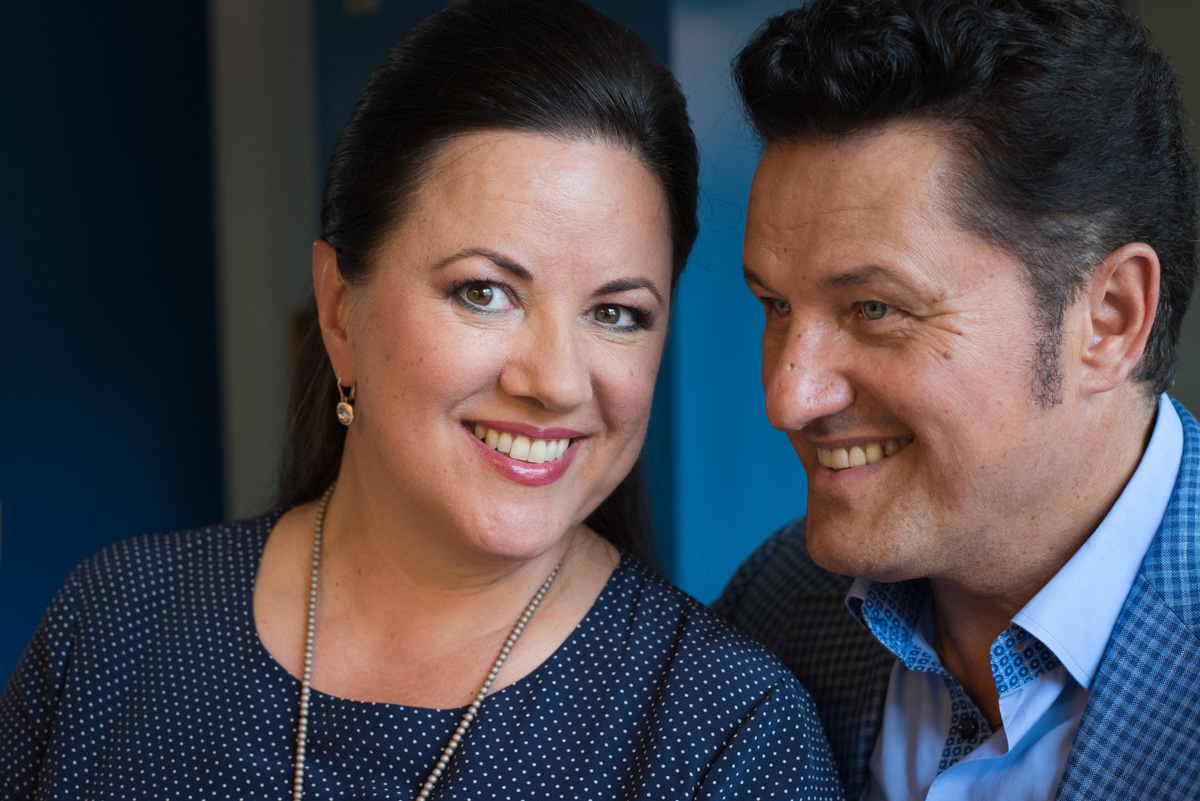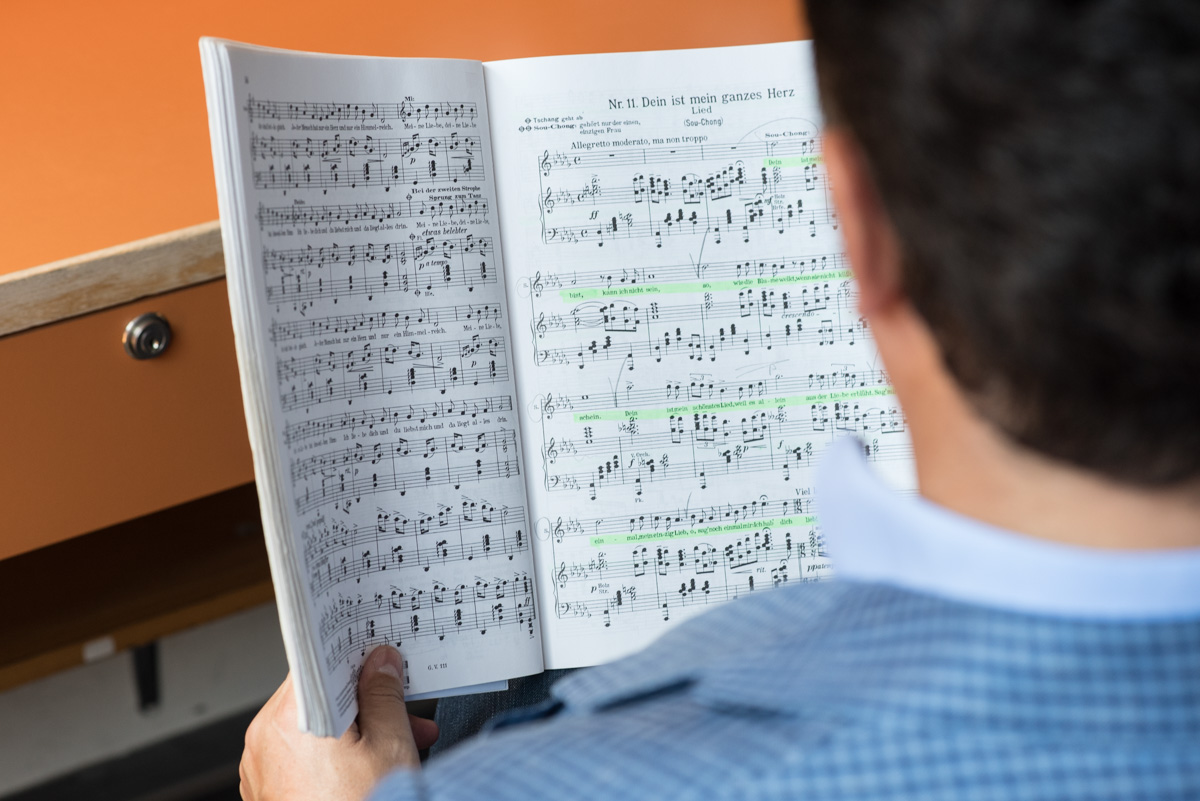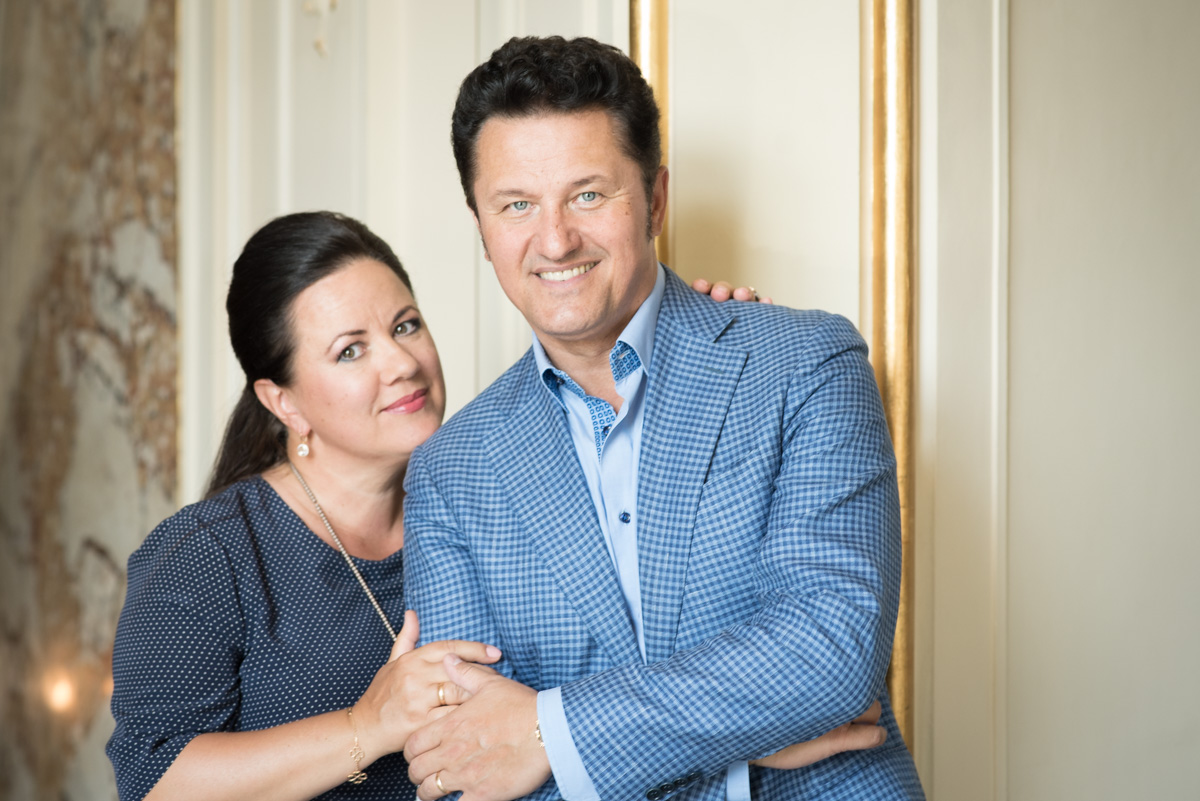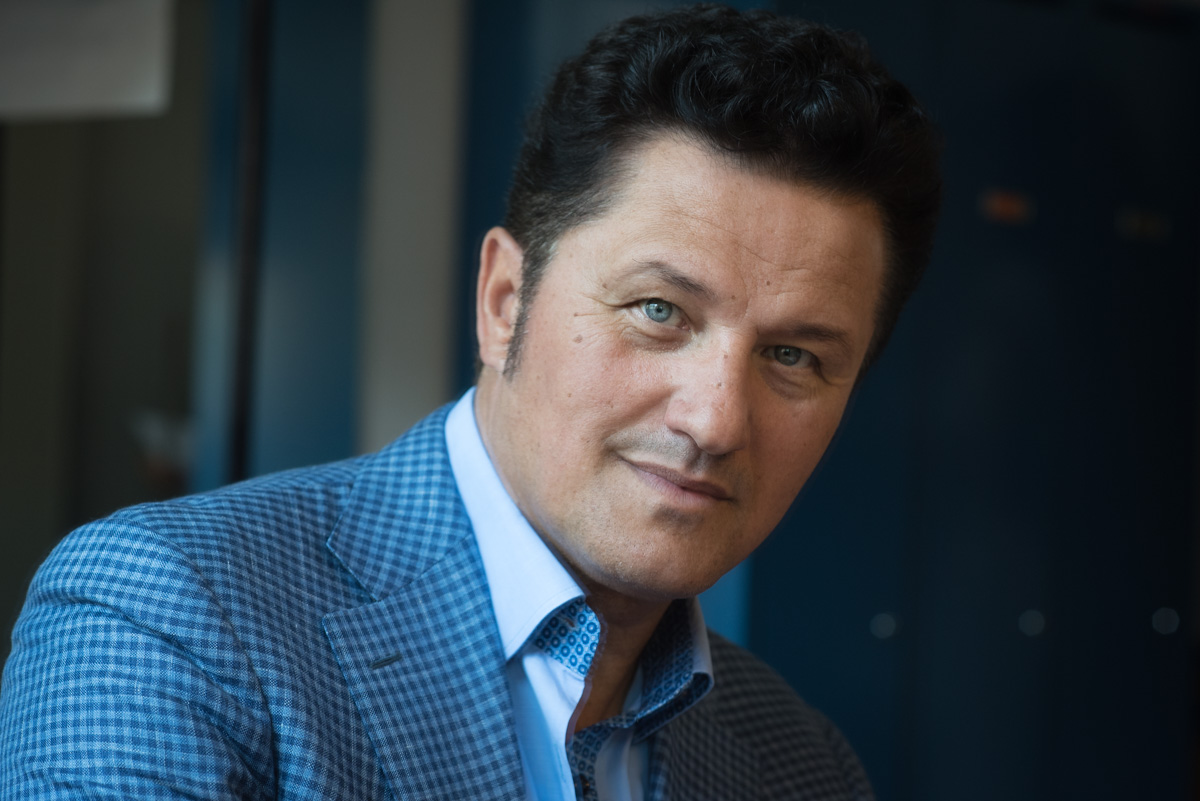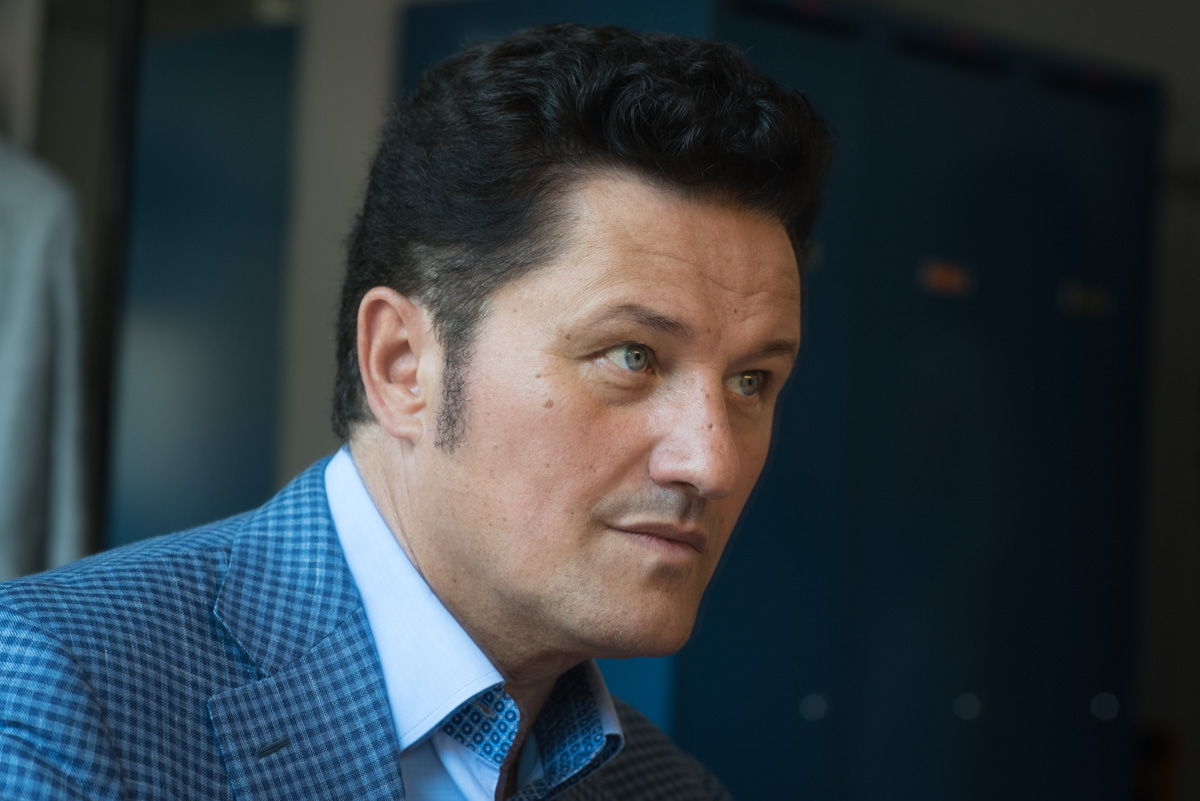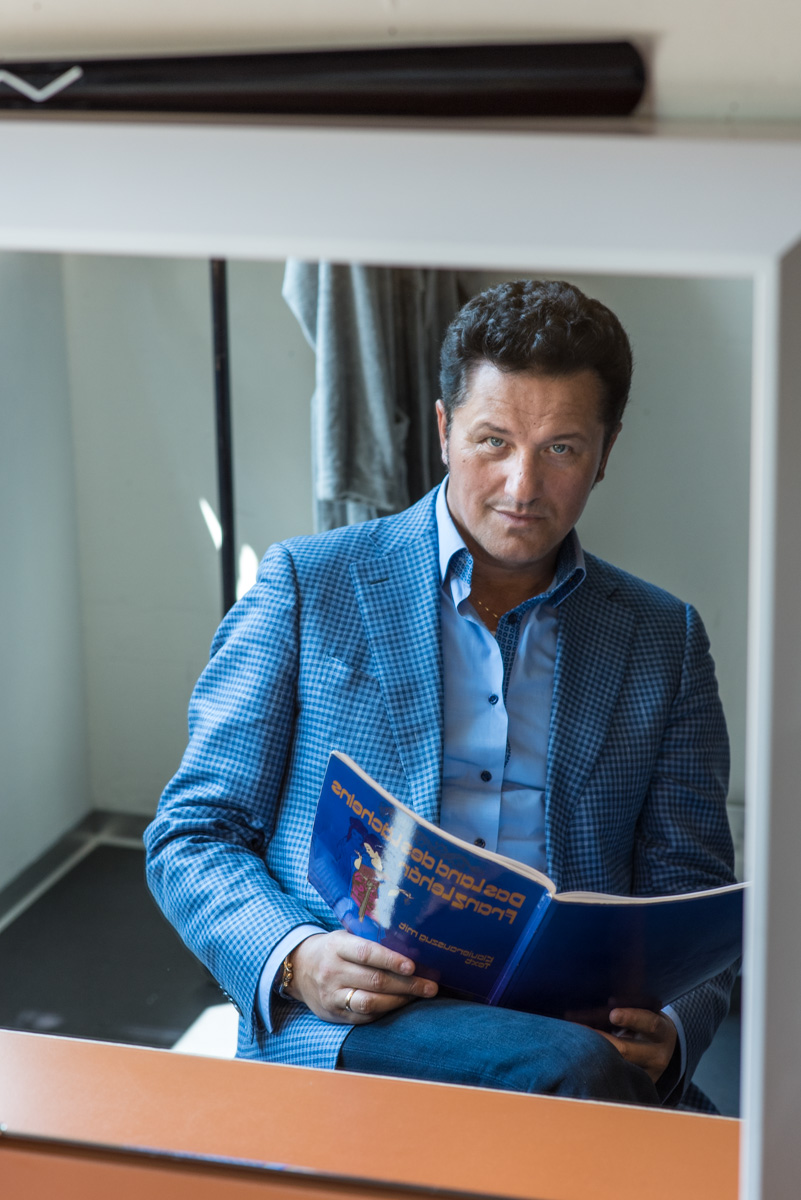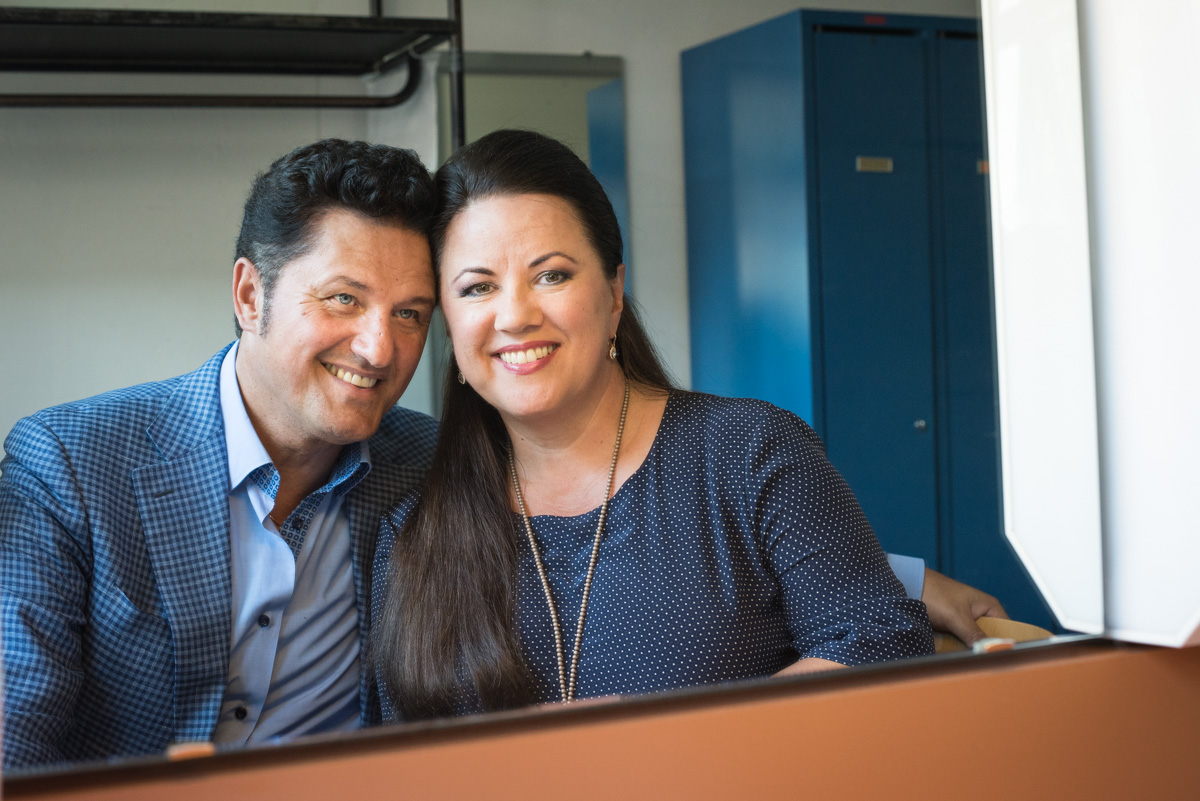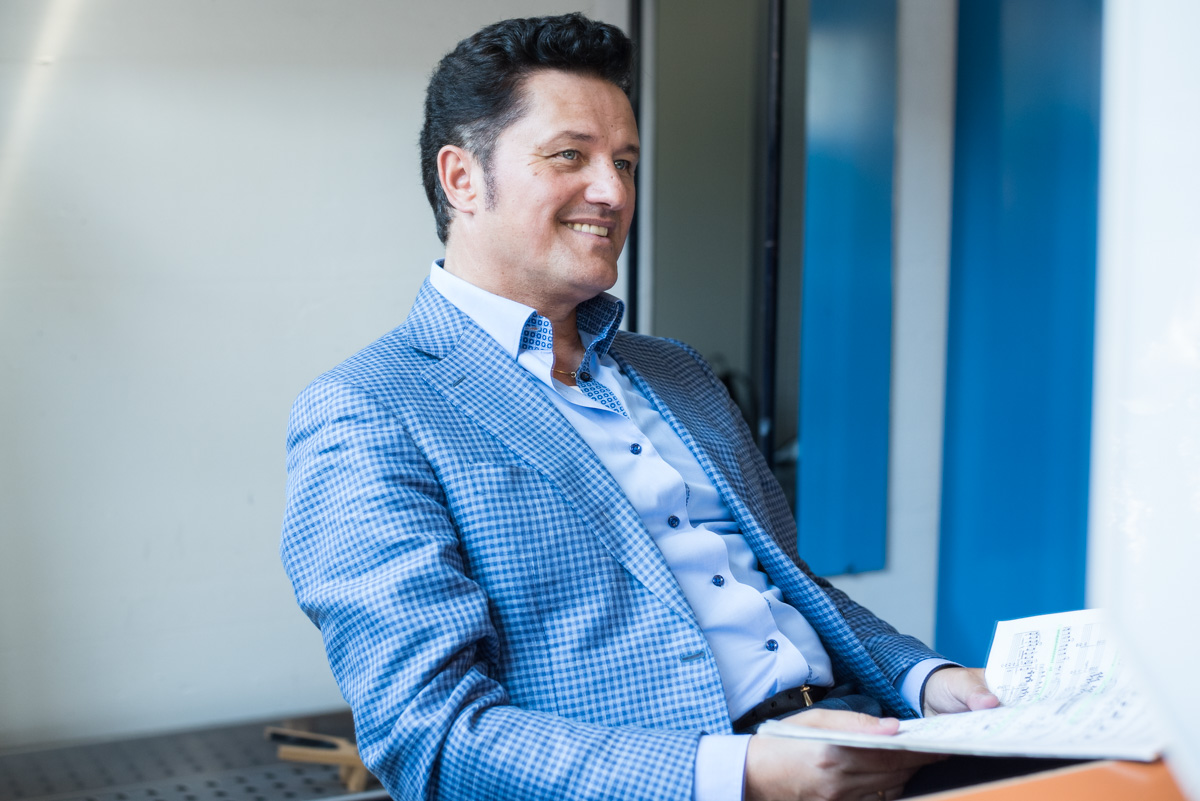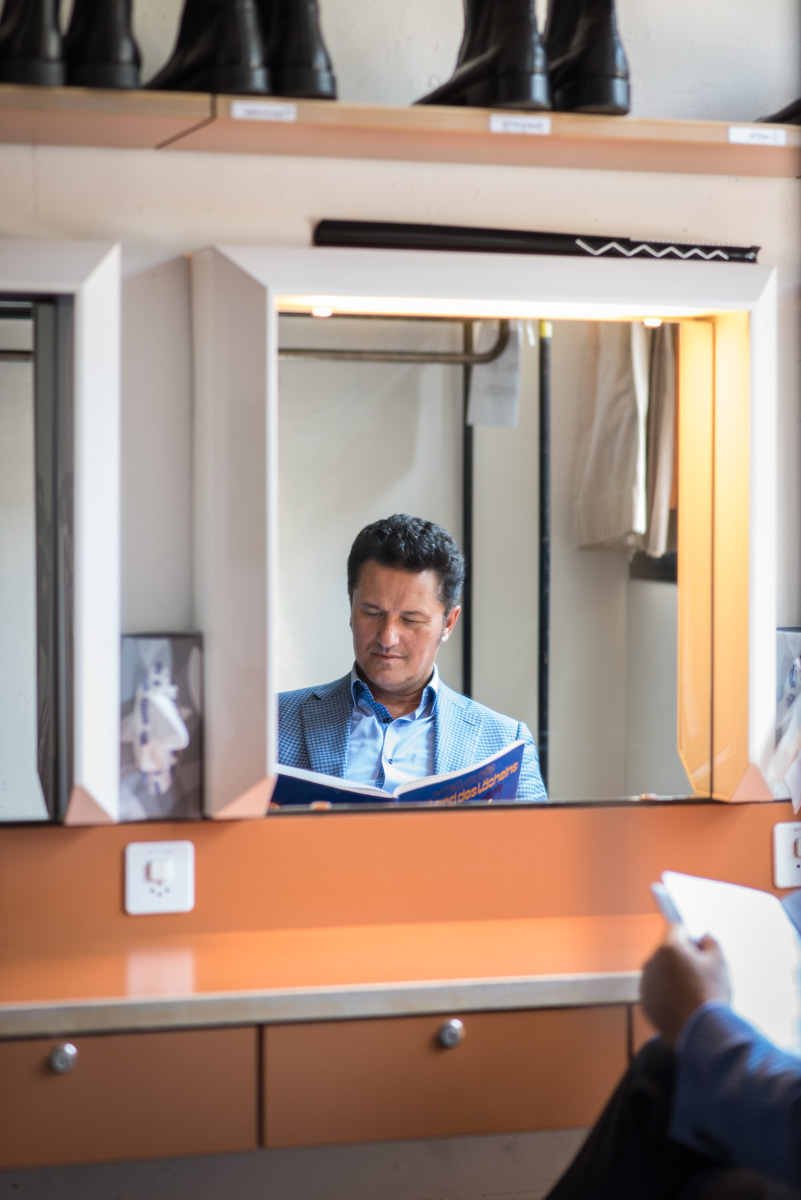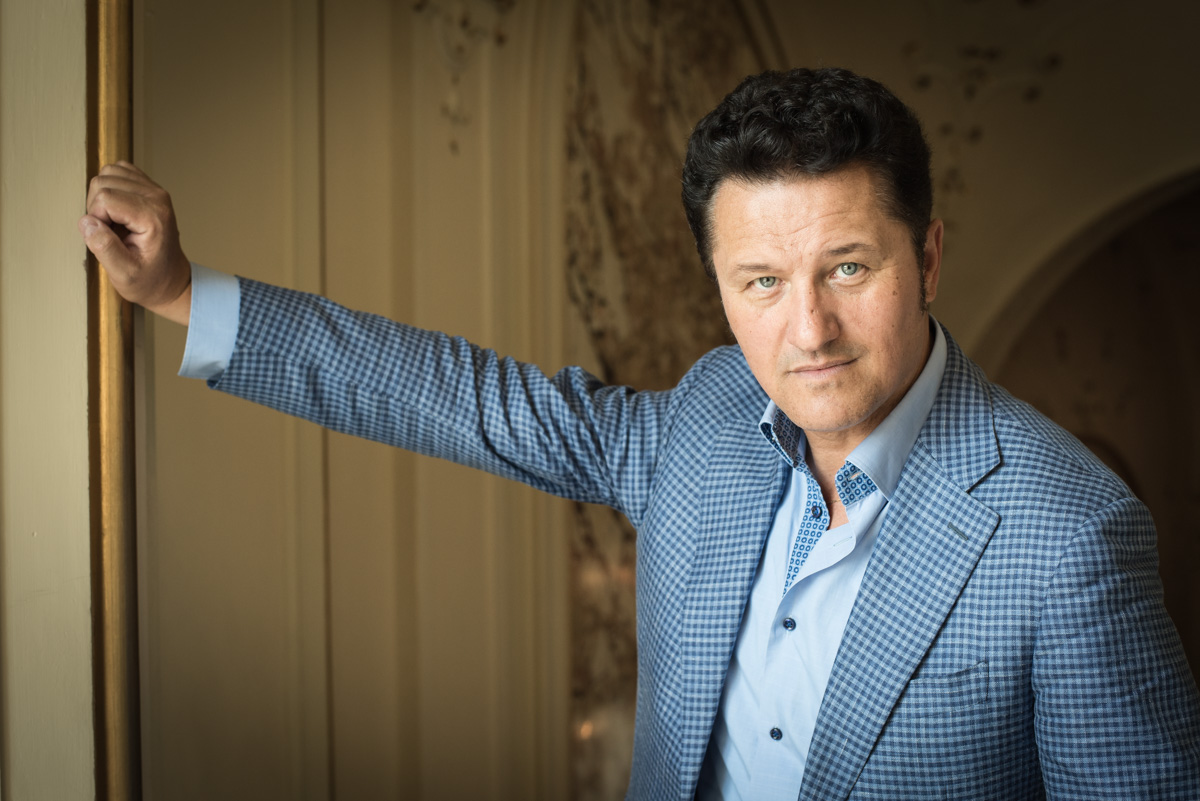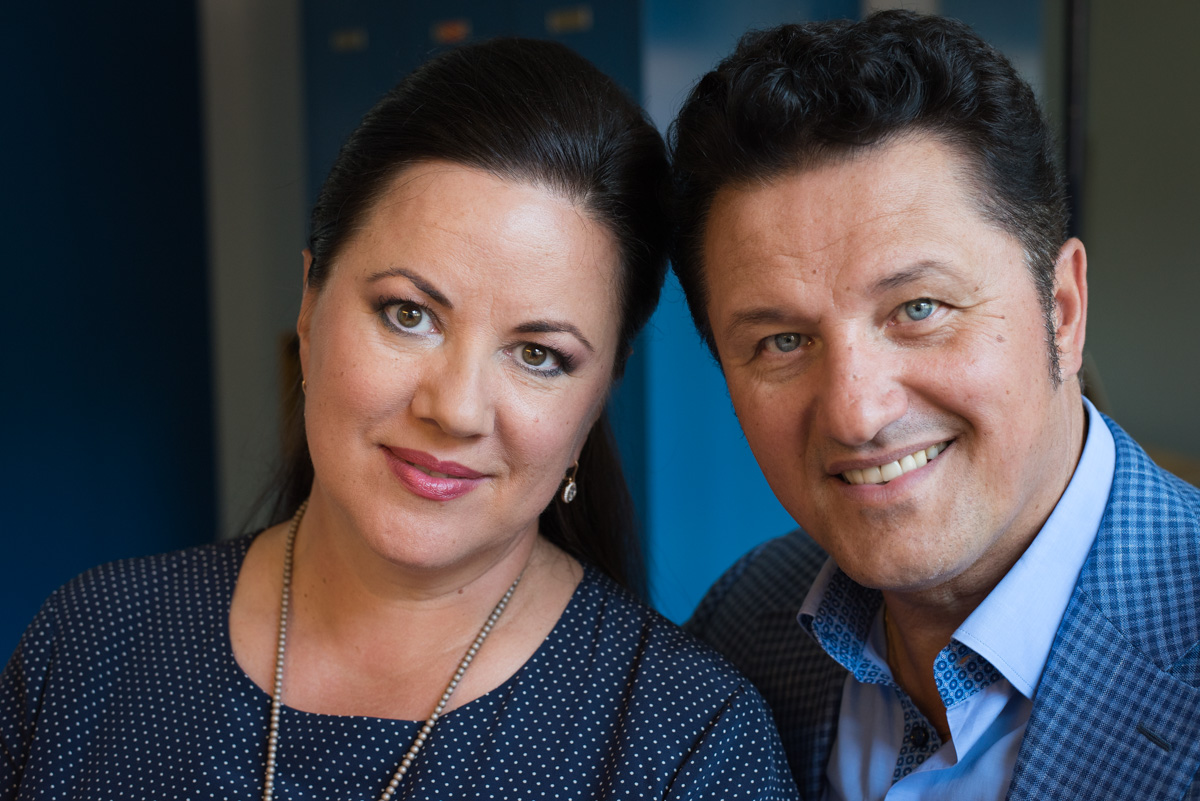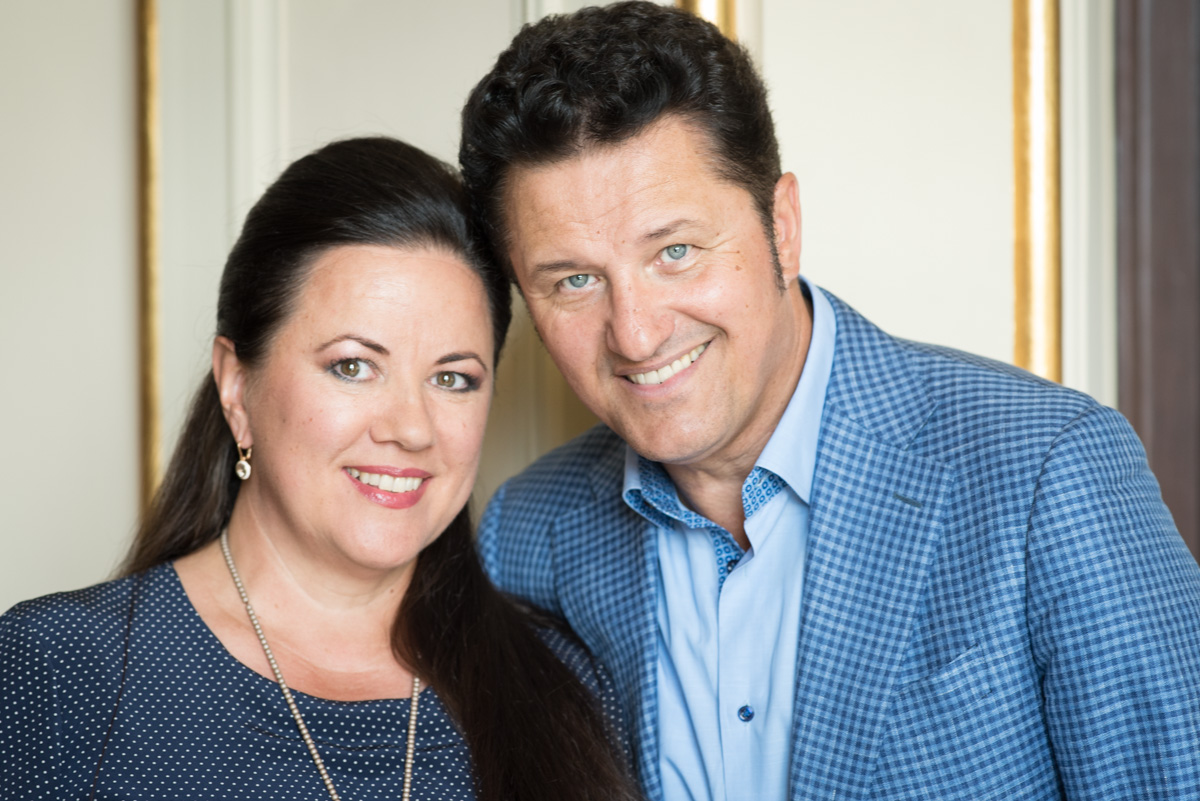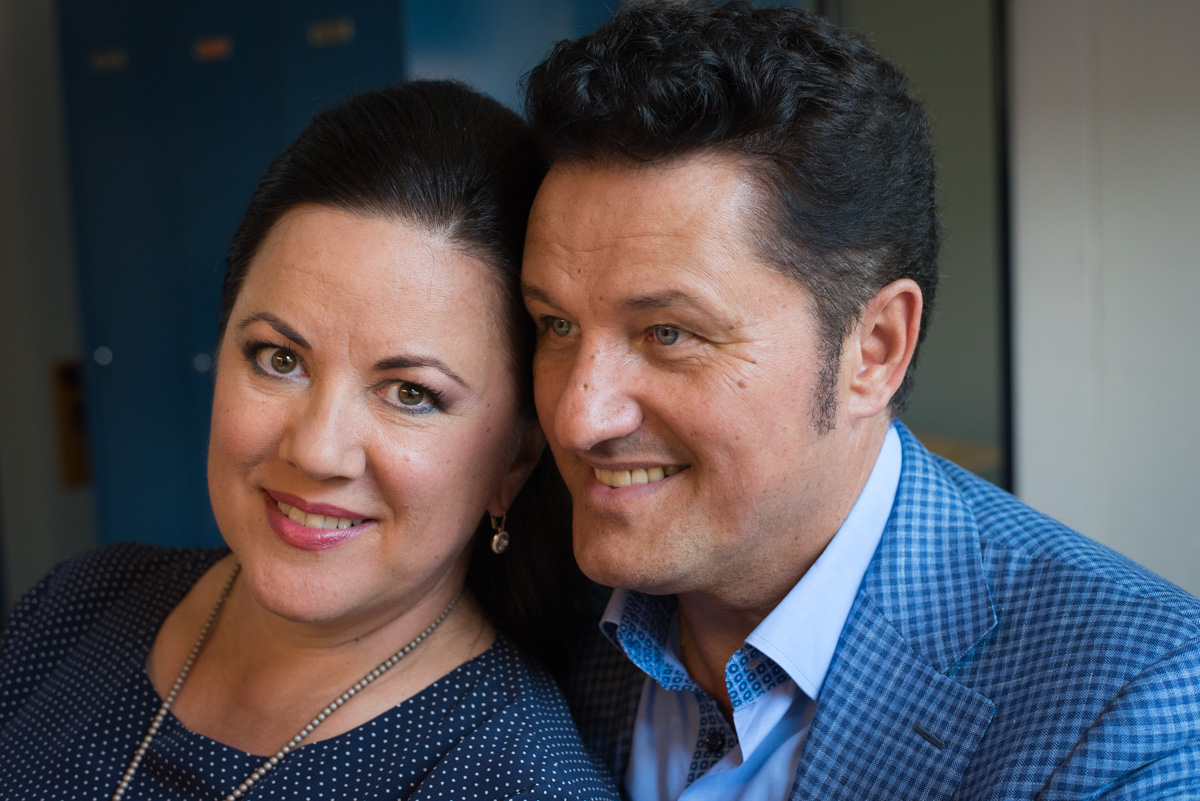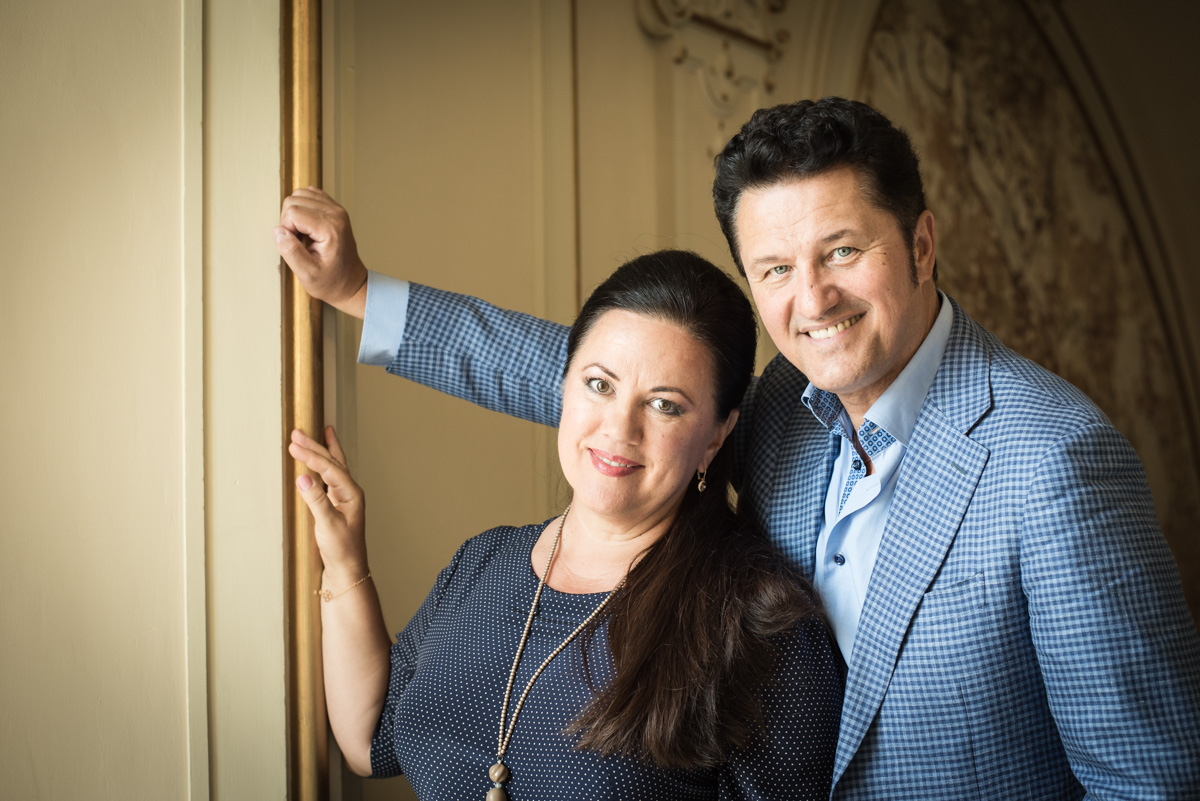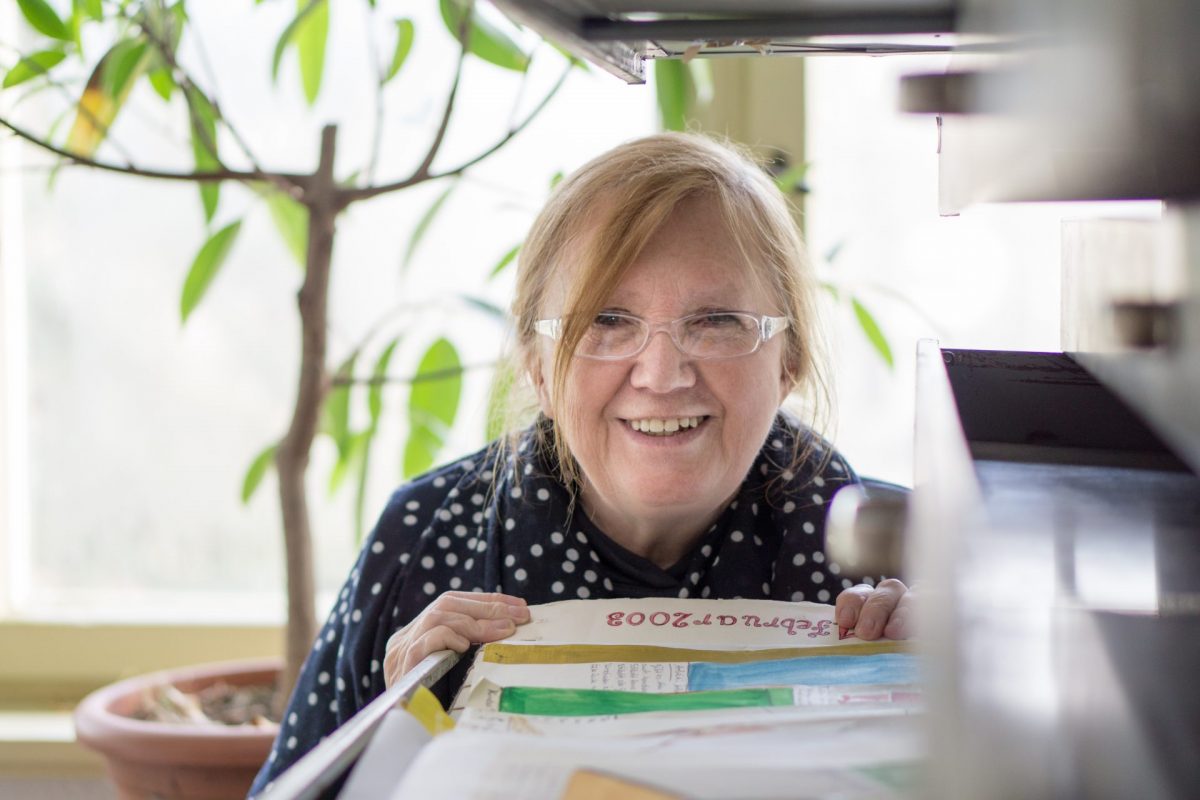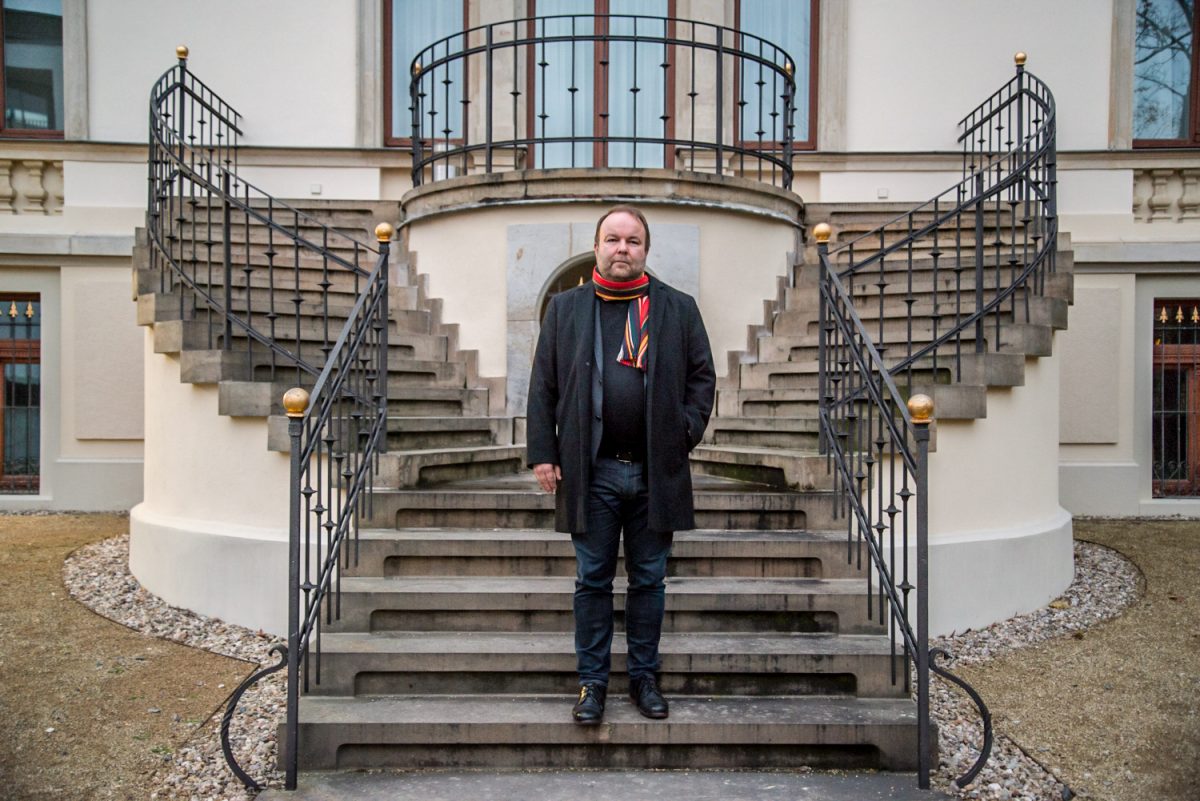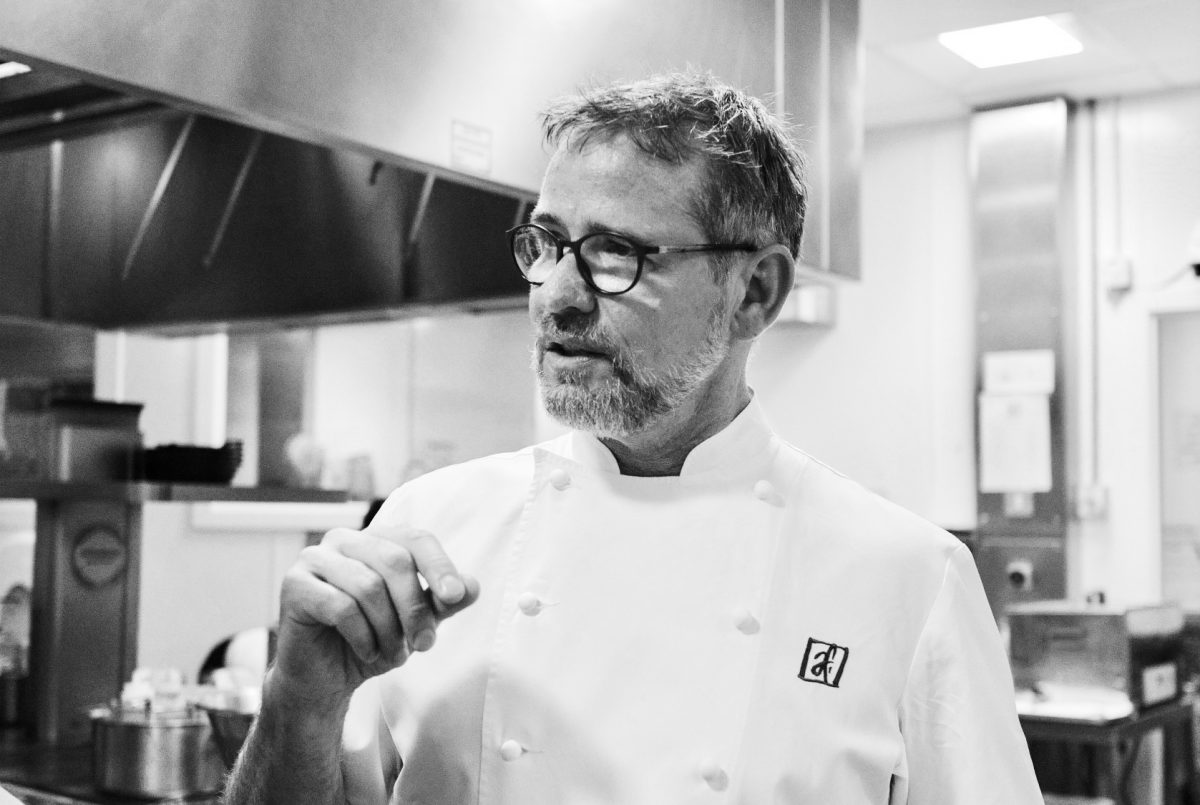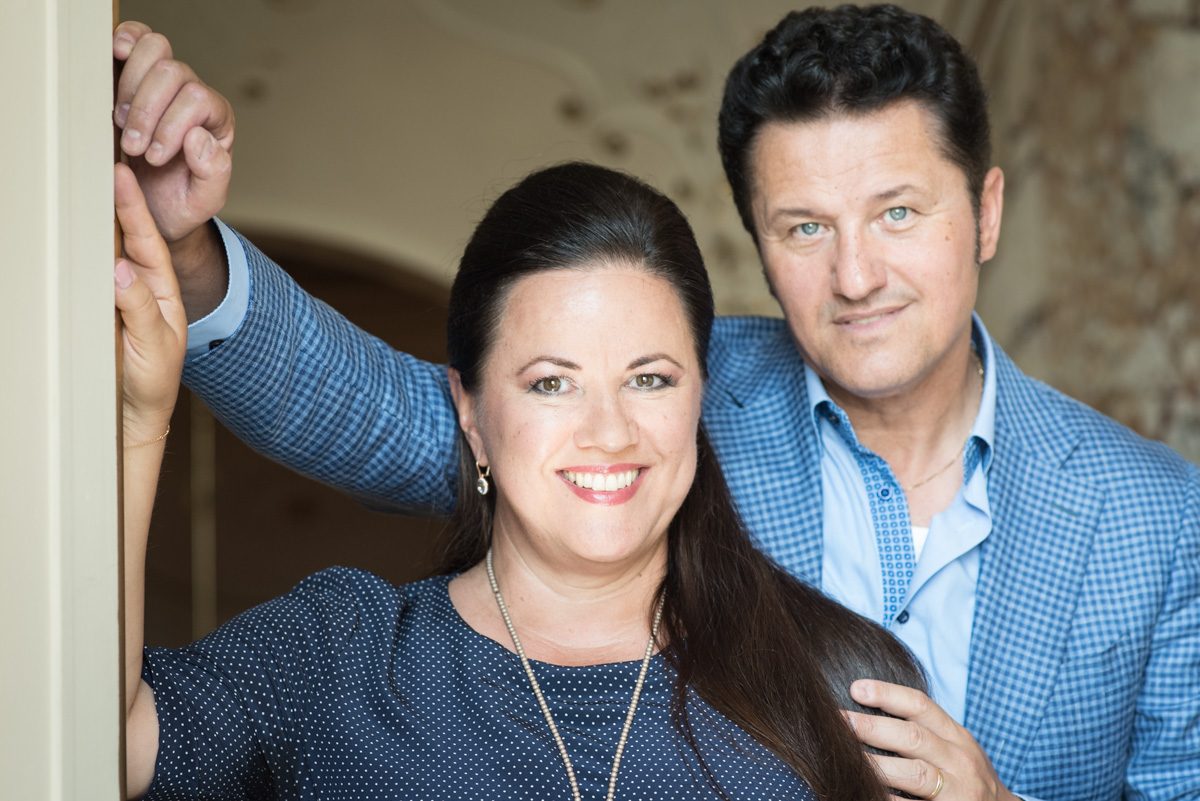
“People often envy me because of my wife.” Piotr Beczala, tenor
At age 50, Piotr Beczala is one of the biggest opera stars, performs on the world’s biggest stages as a lyric tenor, and counts Anna Netrebko among his circle of friends. He modestly attributes his success to his wife Katarzyna, a fellow Pole who gave up her own opera singing career for him. An interview with the two on the power of love, the strengths of taking it slow, and why Mrs. Beczala dreams of goats.
“My wife is a homemaking maestro.”
Anna Maier: You are both currently in Zurich for two months. Is it at all possible to maintain a functioning and comfortable home when you’re constantly traveling?
Piotr Beczala: It would be nice. It would be nice to have a home that would offer a certain stability. But yes, this profession is an international one and I actually knew from the start that we would travel a lot. Luckily, we have set up little pit-stops where we can feel kind of at home. Whether in Zurich or Vienna or New York: my wife is a homemaking maestro, even if we’re only somewhere for a month. We rent an apartment and she goes shopping the first two days and comes home with little things that create a homely atmosphere.
Katarzyna Bak-Beczala: We do need flowers…
Piotr Beczala: So she buys orchids in pots and we keep them for a month and then we pass them on to someone else so other people can enjoy them.
What do you always need in a new place, whether in a hotel room or an apartment, to give you a sense of home when you’re on the road?
Piotr Beczala: Hotels… Yes, that’s an issue. We try to avoid hotels. If I’m somewhere for less than a week, for a single concert, two concerts or so, then we get a hotel room. But otherwise we try to rent apartments. You feel more or less at home there. We change things around a bit and buy little things to go with it. That works best, I think.
Katarzyna Bak-Beczala: Of course it’s nicer if we’re really at home. In New York or Vienna or here in Zurich, we have our things there and a completely different atmosphere, warmth, it’s comfortable, just as we like it. For us, that’s a luxury.
Are the houses or apartments decorated exactly the same?
Piotr Beczala: No…
Katarzyna Bak-Beczala: No, not at all. Completely different. In New York, we have a European style, and in Vienna, we’ve got the New York loft style (laughing). Maybe that’s a little strange, but we like it that way.
“Piotr knows that I only say something if I’m sure that he can do better.”
Most opera singers travel alone. You are lucky enough to have a wife who travels with you. What difference does it make in comparison with your colleagues?
Piotr Beczala: If someone envies me, it’s not for my career, it’s the fact that I’m traveling with Kasia. Yes, we’re a team. It’s not just that I’m married and my wife is traveling with me. She also comes to rehearsals, and she criticizes me unreservedly after concerts and performances.
Katarzyna Bak-Beczala: It’s important to mention that I was also a singer. I gave up my career for Piotr. It was easy for me, because I am still working in art through him. I sing with him, I breathe with him and – of course – I criticize him, too. Singers can’t hear themselves. Piotr also knows that I only say something if I’m sure that he can do better.
How do you need to say it so that the message gets across?
Katarzyna Bak-Beczala: (laughing)
Piotr Beczala: She always goes for the jugular and ends up saying too much. Then I just go.
Katarzyna Bak-Beczala: He always thinks that, and he always says that. But I have to say, we’ve been married for 26 years now and I’m still learning how to speak to him. It’s the hardest thing, because I know that every artist is, shall we say, very sensitive. I need to wait for the right moment and find the right words to reach him. I don’t want to hurt him, of course.
Piotr Beczala: Thank God I’m a half-decent singer… (laughing)
“The producers don’t understand what we say, since we use a code.”
When can you take criticism well? When can you take it less well?
Piotr Beczala: There are no rules. Of course, there are productions where you feel more tense than others. And there are roles I sing more often. Then you really need a finishing touch. There are sometimes situations where both of us find a stylistic solution for the role together. It really varies. It’s not the case that Kasia comes to me and says: “Hey, your singing really sucked.” Thank God, that doesn’t happen! It’s really about improving all the time, from show to show, production to production.
Katarzyna Bak-Beczala: I’m always there, even when he’s recording. The producers also want me to go there so I can get through to him. They don’t understand what I’m saying at all, partly because we speak in Polish, but also because we use a code. They are abbreviations and only we know the meaning.
Can I ask what kind of codes they are?
Piotr Beczala: Well, there’s sort of abbreviations, names for how you change the color of the voice, for example.
Katarzyna Bak-Beczala: Or the position…
Piotr Beczala: …of the voice.
Katarzyna Bak-Beczala: Technical stuff.
Piotr Beczala: What sounds better for the microphone.
She utters a code and you know exactly what it means?
Piotr Beczala: Yes.
Katarzyna Bak-Beczala: He knows immediately what it’s about and he improves it. In the last few years, I’ve learned that I don’t need to tell him after every performance where I find a mistake that he needs to improve something. Because I have confidence that he knows it and finds it himself.
“Singers’ greatest tragedy is that they never get to enjoy the sound of their own voices.”
Piotr Beczala: I’m very critical myself and never happy after a performance. Even the best performance can be improved, in terms of vocals as well as staging. The problem is, I can’t hear myself. Singers’ greatest tragedy is that they never get to enjoy the sound of their own voices.
Katarzyna Bak-Beczala: I don’t know any singers who like hearing themselves anyway. Many people hear recordings and say: “That isn’t me!”
You met when you were 18 years old. Katarzyna, you are also a trained singer. Could it have been the other way round, where you decided that you would focus on your career and Piotr would have been the strong man by your side?
Piotr Beczala: That was actually the plan.
Really?
Piotr Beczala: I got my first proper job in Linz, at the Landestheater, in 1992. Just after graduation. The plan was that I would be hired in Linz permanently and that my wife would have the career. She won an important competition back in 1991.
Katarzyna Bak-Beczala: For me, everything happened very fast. When I was a student, I was already singing on a lot of professional stages and I won a competition in Germany, a Grand Prix. Then I got an offer from the Scala in Milan, a premiere with Muti. I turned it all down.
“I always knew that I was looking for love in my life.”
Why?
Piotr Beczala: We got married then. Katarzyna Bak-Beczala: I’m a very intuitive woman. I always knew that I was looking for love in my life.
Piotr Beczala: Still? (laughing)
Katarzyna Bak-Beczala: (laughing) I was very happy on stage, too. Of course, I liked that. So it wasn’t easy for me. I have to be honest. It hurt. I yearned for the stage. Sometimes, when I’ve been sitting in the audience and heard Piotr with colleagues and mezzo sopranos, I’ve thought…
I want to get up there…
Katarzyna Bak-Beczala: Yes, I’ll get up there. But I know it’s impossible. We tried it.
Piotr Beczala: For two seasons.
Katarzyna Bak-Beczala: Yes, you were in Linz, I had concerts in Milan, and it really hurt me to live without him. The yearning was so strong, I simply couldn’t bear it.
Piotr Beczala: See, you’re not suited to a career. (laughing)
Is he always this charming?
Katarzyna Bak-Beczala: (laughing)
Piotr Beczala: Well, in short: I feel a bit sorry for colleagues who travel alone sometimes. You know: I’m a Capricorn, I look for stability in a relationship. The way I saw it was: I found a woman, fell in love, so went straight to my future father-in-law with a bouquet of roses and…
“I’m a humble boy from the provinces, somehow I never dared.”
You got married straight away?
Katarzyna Bak-Beczala: No, that’s not what happened! He’s talking garbage! We knew each other for seven years. We were good friends. I never took him seriously because I thought I would have an older man at my side.
Piotr Beczala: Luckily, I’m one year older… (laughing)
Katarzyna Bak-Beczala: I wanted a mature man. He wasn’t on my radar.
Piotr Beczala: You didn’t take me seriously?
Katarzyna Bak-Beczala: I did. As a friend. As a colleague. I really liked him, and I had my eye on him. In life, I tend to be very watchful anyway. So I knew he was a good person and a gentleman. I witnessed many times how he approaches people with a generous heart. And so I eventually hatched a plan… (laughing)
Piotr Beczala: I’m so tired of this story!
Katarzyna Bak-Beczala: When I finished my studies, I decided to spend the summer with my best friend.
Piotr Beczala: You’ll need five pages just for this one story…
Katarzyna Bak-Beczala: No, short and sweet: I thought the two of them would really suit each other. Seems like I was wrong…
Piotr Beczala: This is always how it is with us, she talks and I nod (laughing). No, what really happened was: I was always watching her, too. We sang together in the choir, as friends. She was just a cut above me. I’m a humble boy. I studied in Katowice. She studied in Warsaw, the capital. She had these brash boyfriends who somehow always knew better. I was from the provinces, somehow I never dared. Eventually, when it didn’t work with her friend, it happened.
“I’ve seen so many young tenors who shot past me and then crashed.”
Do you think you would have had such a brilliant career if you’d been on your own?
Piotr Beczala: Absolutely not. I’m an example of how a singing career can really be a case of stamina and a long, long story. Over these long years, I’ve seen so many younger tenors who shot past me as if speeding down the highway and then I’ve often seen them in the ditch, having crashed. That’s sad. Now, with the perspective of 25 years on stage, I can also explain to young people: slow and steady wins the race.
What did they do wrong, these people who just shot by?
Piotr Beczala: Ah, there are so many temptations. I experienced them, too. For instance, you’re often not mature enough for a singing career in the big venues. You have to mature, not just vocally, but mentally, too. And you have to be ready for the artistic directors, the conductors, the directors to take you seriously as a singer. Of course, it’s much more exciting for the media if a 28-year-old makes a glamorous appearance on stage in a drama, giving it his all with youthful energy. For instance, last year, I made my debut as Lohengrin and Don José. Aged 50.
Highly unusual.
Piotr Beczala: It is, but I can sing it every second day.
Katarzyna Bak-Beczala: And that’s how he wanted it. Piotr Beczala: I can control it. I’m now able to control the emotions on stage when I perform. I know how far I can go.
“Young people are entitled to be dumb and inexperienced. The important thing is the right environment.”
Could you say, therefore, that young tenors are actually the victims of their own passion?
Piotr Beczala: Yes, that too.
Katarzyna Bak-Beczala: Yes, that too.
That they are completely overwhelmed because they want everything right now?
Piotr Beczala: They have the right to be dumb and inexperienced. But you need to have people around you, whether it’s an agent or a conductor or a singer you’re friends with, or your wife, who says: “Hey, not yet. Just wait a bit longer.”
Do people dare to do that in their younger years? I imagine you get an offer from a major opera house, a big role, huge fame awaits. Do you then really say: “No, I’m not ready”?
Piotr Beczala: Yes.
Did you dare to do that in your career?
Piotr Beczala: Yes, of course.
Katarzyna Bak-Beczala: Always.
Piotr Beczala: I didn’t sign two major contracts, because I thought they just weren’t right for me. It only worked on the third attempt, in 2006, at the Metropolitan Opera in New York.
What reassured you that you wouldn’t be forgotten or that people wouldn’t think, OK, Piotr doesn’t want to, we’ll go with someone else?
Piotr Beczala: Nothing. Nothing. Nothing. But I wouldn’t have been sad or desperate either if it hadn’t worked. My plan wasn’t to be a star at the Metropolitan Opera or a permanent guest at the Salzburg Festival. No, not at all.
What was your plan?
Piotr Beczala: My plan was – and is! – to sing the role I have to the best of my ability. The results of this activity are either rewarded or you get shelved.
“Pull yourself together. Now you need to sing for both of us.”
But the results for you personally are also the results for you both. You have been lucky enough – or talented enough – to be able to do this career for many years. Most opera singers must be worried: will I get another role or not? Why does it work for you while others regard it as a job that doesn’t pay?
Piotr Beczala: Because I have never really considered the career as a career. It was never my plan: if I’m not debuting at the Metropolitan by 2007, my life will be ruined. Not at all. There are lots of opera houses in the world and I was at home in Zurich.
And what about you, Katarzyna? Were you happy with him singing away to himself without a plan?
Katarzyna Bak-Beczala: No, I don’t think so.
Piotr Beczala: So SHE had ambition and drive.
Katarzyna Bak-Beczala: I must say, I did have big ambitions. After all, as I mentioned, back when I was a student, everything happened very fast for me. And when I said, OK, I’ll stop doing it out of love for you, then…
Piotr Beczala: …she told me: “Pull yourself together. Now you need to sing for both of us.” (laughing)
Katarzyna Bak-Beczala: At the beginning of our marriage, he didn’t sing as well as he does now.
Piotr Beczala: She was very good and I was really average. Let’s put it that way. Katarzyna Bak-Beczala: So, I sat in the hall in Linz and thought: “My God, what will we live on?” Seriously, that’s what I thought back then.
Were there existential worries?
Katarzyna Bak-Beczala: Yes. But I don’t know anyone else who has evolved so much over the years. Because he wanted it that way. That always fascinated me. He always wanted to get better and better. He’s unbelievably hard-working.
“Suddenly, I realized: Piotr can touch people. That was the moment I decided to give up my career for him.”
Did you believe in him from the very beginning?
Katarzyna Bak-Beczala: No! I didn’t. It took a couple of years. In the third year of his career, that’s when I saw it: He’s got that special something.
What was that moment like? When you had that exact feeling?
Katarzyna Bak-Beczala: When he moved me very deeply. When I didn’t hear anything I wanted to correct. He had to open himself up to that. And he did open himself up, at some point. It was that simple.
Piotr Beczala: I am, quite simply, an introvert.
Katarzyna Bak-Beczala: He really moved me first of all. It was a Werther production where people just kept coming back. The same people! It became something of a cult in Linz. That’s when I realized: Piotr can touch people. And that was also the moment I decided to give up my career for him.
You said before: “I always knew that I was looking for love in my life.” Where does this strong desire for love come from? Everyone has it in them in some shape or form, but in you, it was so marked, that you were ready to take a lot of action in that regard.
Katarzyna Bak-Beczala: I don’t know where it comes from. Love is simply the essence of my life. I think it makes sense: my life only has meaning if I love and give love. That’s when I’m happy. You see, in the first few years of my career, I was really afraid, panicking, that I’d be alone like the other prima donnas. I didn’t see any prima donna who was truly happy as a wife and who was loved. They were all on their own. And that was my biggest fear. I didn’t want to be alone.
But isn’t it precisely this passion you need to give a credible performance on stage? Opera is usually about drama, isn’t it?
Katarzyna Bak-Beczala: Yes. But I don’t think it’s necessary to experience it.
Piotr Beczala: You don’t have to experience any drama or trauma yourself to be able to play it on stage. Although there are stagings today that demand just that. You are broken and destroyed first of all and then built back up out of the ashes. I don’t believe in this stuff. I think as a mature actor, you take the role seriously, you develop the role, and then you’re credible.
“In this profession, there are lots of people with huge egos.”
You once said in an interview that people shouldn’t offend you by underestimating your intelligence. When did you have the feeling that people didn’t take you seriously?
Piotr Beczala: Oh there are, and there have been, moments. You know, in this profession, there are lots of people with huge egos. Whether they’re singers, directors or conductors. But we’re creating something astonishing together. It’s not the case that I’m standing on the stage as someone’s tool and do everything they tell me. No, no, no. I also have something to say, because ultimately, I’m there on the stage. I’m the person who stands there and sweats and tries to use my skills to tell the story. And so, I simply demand more respect. Now, everything’s a bit easier, because I’m on a level where I’m automatically taken seriously.
Where people listen to you, too?
Piotr Beczala: That’s it, but it wasn’t always the case. I have also been through several phases with productions where I listened more carefully. And then when I gave my opinion in a couple of sentences in the fourth week, everyone was shocked, not just that I was thinking, but that I could make a decision that could take us forward, as a group, as a team. A very tricky topic…
Why?
Piotr Beczala: It’s because we’re all performers and not creators like painters or sculptors who take personal responsibility for their art. We share the responsibility with the director and the conductor. That’s why we should also be treated as a partner when a new production is taking shape, and not simply as a tool.
You are the male opera star of the year, received an award in London. At the “ripe age” – for a singer – of 50, that’s an astonishing achievement. How was it for you when you heard that you were to receive this accolade?
Piotr Beczala: I was delighted, of course, as it’s a huge accolade. I was nominated three times, I think, in different categories. This time it worked. An honor, without doubt, a confirmation that one’s done something right after all. But it has no direct influence on my career.
You seem pretty unmoved by the award…
Piotr Beczala: Really? Yes. Although it’s a magnificent and important award, as I already said with the Echo three years ago – I was the singer of the year in the “Classical music” category – it’s a prize for the past, but I’m mostly interested in the future. So this kind of award is just an incentive to be even better.
What matters to you more than prizes? Why do you go on stage?
Piotr Beczala: I have a certain talent for singing. And I can communicate emotions with my voice. And it turned out in recent years that this link to the audience through the voice and performance has grown more and more. I really consider my profession a calling. But I could do something else. I might also be a great baker. Or a ship’s captain. Everyone can be a superstar in their element. It’s just a different responsibility.
“Sometimes I maybe take my profession a bit too seriously. I know that almost every singer has been booed at least once.”
Public opinion is a direct and incalculable reaction for the opera singer. You can tell immediately whether people are opening their hearts or not. On one occasion in Milan, the audience booed after your performance. What exactly happened?
Piotr Beczala: It’s really my fault that it reached these heights. I got annoyed with a few people and just posted something on social media. That set off the whole avalanche. It was really just three or four people who booed.
Why did you post it?
Piotr Beczala: Because I was really annoyed. We toiled away for six weeks. I defended everyone against criticism. The conductor, the director. When I’m hired for a season opening for the Scala, that’s already a huge challenge for me. In every respect. And I want to do it well. But when I get the sense that everyone is trying to take the biggest slice of the cake and doesn’t want to share it with anyone, then it gets hard. So, the conductor wanted to conduct the best Traviata of all time, the director wanted to subvert the whole thing and tell a new story, and I was in the middle, worrying about the meaning of it all. I sat down with the director before the dress rehearsal and said: “You have to give me five minutes of love in the three hours because I’m carrying the responsibility that I have to show the audience. It’s not an accident that Alfredo and Violetta are on stage. They’re not cold fish, they’re people with emotions; he thought it was solely a question of exploitation. That’s wrong!” And the director somehow made me make a pizza. I was really annoyed. The dress rehearsal was sold out to young people under 30. It was a full house. Tickets only cost 10 euros. There were loud cheers. After the performance, we talked to the young people and were full of confidence that it had gone down well, were happy to have made another show even under the direst of conditions. I knew the director would face a hurricane of booing. But as the singer, I took it very personally. I gave my all and I know there’s nothing I have to be ashamed of.
Katarzyna Bak-Beczala: You can’t hear the booing, not on the YouTube recording anyway. It was three people, as he said.
Piotr Beczala: Maybe I take my profession a bit too seriously at times. I know that almost every singer has been booed there at least once.
Katarzyna Bak-Beczala: I didn’t know he’d posted about his annoyance.
Otherwise would you have stopped him?
Katarzyna Bak-Beczala: Of course! But look: the person on stage is giving all of themselves to their art. That’s why he was so deeply affected.
“Seeing him suffer is awful for me, absolutely awful.”
What’s going on with you at that moment, Katarzyna?
Katarzyna Bak-Beczala: For me, it’s the worst. I’m looking for answers: how can I help him? But he doesn’t let you help him. He’s that kind of guy, very emotional, he doesn’t show it, but it’s sitting very deep inside him and I have to drill my way in, and then I might slowly get to him. Seeing him suffer is awful for me, absolutely awful.
Piotr Beczala: I have to process it myself first. For my own sake. But I’m tough. Everyone who tried to cut me down a bit back then underestimated me.
But you still sing in Milan?
Piotr Beczala: I sang a recital there last year. It was wonderful. I don’t have a problem with singing in Milan. A singer, a real, honest singer, knows when he’s screwed up, as it were. If someone boos, heckles, or the audience reaction isn’t so strong, you also know where the mistake is. But when you have nothing to blame yourself for in this situation, that’s when it gets tough. Italians came to me and said sorry. The heads of the opera house were at the premiere and came to me and said: We’re really sorry, it’s awful.
Katarzyna Bak-Beczala: People still write in emails or on Facebook: “When are you coming back to us?” But I personally I have to say, even if it might be undiplomatic, that I never really felt comfortable in Milan.
Is there such a thing as the “atmosphere” of an opera house…?
Katarzyna Bak-Beczala: That’s right. That’s why we love the Vienna State Opera, the Metropolitan Opera in New York, or Zurich, where we’re at home. When we arrive, everyone’s just happy about it and that’s lovely. Piotr Beczala: It’s about situations in the opera house. It starts with the porter, continues with the technical aspects, wardrobe, direction. Everyone who works at an opera house creates the atmosphere. I’m very low-maintenance.
So you aren’t a diva?
Piotr Beczala: Not at all. I talk to the technical staff, choristers and extras, since they’re toiling away just as hard as we are, sometimes even harder… Katarzyna Bak-Beczala: He remembers every name! Piotr Beczala: I know a lot of those working here and from my time in Linz. So, Milan is quite a special case. And it’s one of the least friendly areas I’ve worked in.
“Anna Netrebko is our neighbor in New York. She always cooks too much soup, and brings us a little pot.”
Do you find a sort of replacement family in the opera world, since you’re always on the move? Because it’s really important that you feel good where you work? Because it isn’t just a job, but a calling, as you put it?
Piotr Beczala: That’s absolutely true and we always meet the same people. We go to Milan and Paris or London or New York, where someone has sung something, and then we almost always meet the same people. This social life is very tightly knit.
Katarzyna Bak-Beczala: For instance, we’re friends with Anna. Piotr sings with Anna Netrebko almost every season. We’re even neighbors in New York. We love that. Normal life: cooking together, going somewhere together…
Piotr Beczala: She always cooks too much soup, so we get a little pot of it, and vice versa…
Katarzyna Bak-Beczala: We all really love it.
If someone had told the 15-year-old Piotr: you’ll be an opera star one day! How would he have reacted?
Piotr Beczala: As a 15-year-old, I would have had a good laugh at that. Because I had absolutely nothing to do with music back then and my interest in opera was very limited. Everyone knew about Caruso and that was about it.
Is it true that you sang on the street? Busking?
Piotr Beczala: Yes, yes. I had no money. My parents aren’t wealthy and I studied singing, and a colleague of mine said: look, you can work on the black market in Vienna. Go to Vienna, turn up at the employment office at 5 am, and then either go do tiling or to the building site, do building work. I did that for a week. And then it was Saturday, and I went downtown and walked around and saw people playing music. And I thought: my God, they’re getting paid for it! That’s so cool! So, I set myself up, put out a cap, and earned more in an hour than I did in a whole day on the building site. I thought: that’s it! I’m no idiot! From then on, I sang on the street every day, and in the evening I had my standing spot in the State Opera. That was a great time!
Katarzyna, without you, Piotr – and he says this too – wouldn’t be where he is today. How much of his success is down to your efforts?
Katarzyna Bak-Beczala: I think that he’s lacking what I have, and if I were singing, I’d lack what he has. That’s why we always say we’re a really good team. Because we complement each other.
“He’s a workaholic! He needs the work.” – “No, no, no.”
You love cooking together, are wine connoisseurs, enjoy some golf and have a vintage car. Your life is jam-packed! I can’t imagine that if your career came to an end, you would slow to a standstill.
Piotr Beczala: Hmm. No.
Katarzyna Bak-Beczala: He’s a workaholic! He needs the work.
Piotr Beczala: No, no, no, I’m not at all. I can stop tomorrow.
Do you believe that?
Katarzyna Bak-Beczala: No.
Piotr Beczala: I would do something else.
Katarzyna Bak-Beczala: No, that’s unlikely.
Does that mean you can imagine being on stage forever? Does it depend on the…
Piotr Beczala: No.
… voice?
Piotr Beczala: I can’t imagine it. I’m someone who believes in performance. And if performance is notably decreasing, you have to make the call to concede. There are many roles that people still sing when they are older. But my whole life, I’ve been singing the lead role, and I couldn’t imagine singing small roles or character roles.
If you noticed that things were just going downhill vocally, then you would…
Piotr Beczala: Yes, immediately.
…throw in the towel?
Piotr Beczala: I think – am I right, darling? – we’re finalizing the 2021/22 season now. We always plan four or five years in advance. That means you also have to prepare an ending. To my mind, you ought to have an idea of what you want to do when you’re – let’s say – over 60.
And what do you want to do?
Piotr Beczala: I would definitely teach.
Katarzyna Bak-Beczala: He’ll teach. He loves it. He loves teaching and even said once that he was better at it than singing.
“I’d like to finally have a house, with goats! They are so cute.”
But then you’ll be tied to one place.
Katarzyna Bak-Beczala: That’s nice, I like the idea (laughing). I’m waiting for it. I’m waiting. I’d like to finally have a house, my dream house…
Piotr Beczala: And goats.
Why goats?
Piotr Beczala: Well, she loves goats. And she wants goats.
Katarzyna Bak-Beczala: (laughing) I love dogs and I love goats. They are so cute.
Piotr Beczala: I want a big sheepdog. That’s for sure.
Katarzyna Bak-Beczala: Yes, we already have a lot in mind, but we don’t know where yet. Maybe even here. We’ve been Swiss for six years.
There isn’t a boring day in your life, is there?
Piotr Beczala: Oh no, no, no.
Katarzyna Bak-Beczala: No.
Piotr Beczala: Especially when she beats me at golf.
Katarzyna Bak-Beczala: (laughing)
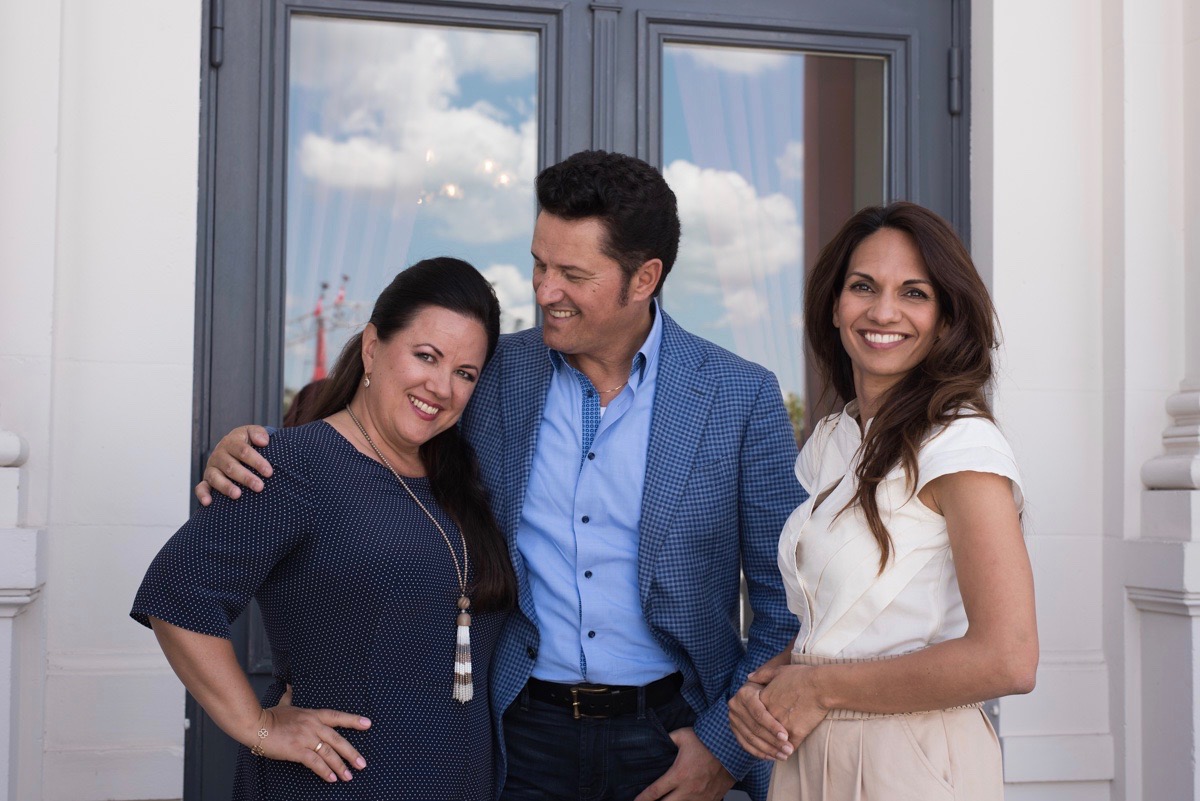
Katarzyna and Piotr Beczala, interviewed by Anna Maier
“I want to be the best wife. That’s my ambition.”
Might it happen, Katarzyna, that when Piotr ends his career, it’s your time and you will then also teach, for example?
Katarzyna Bak-Beczala: I don’t really have these ambitions. I want to be the best wife. That’s my ambition.
But you’ve already reached that goal, haven’t you?
Katarzyna Bak-Beczala: No, I am constantly learning over and over again what it means to be the wife of a tenor. I need to be a psychologist. I organize everything. There’s a lot to do and I just want to be a good wife. But as for teaching: I won’t do it. I don’t have his patience for young people who can’t sing. I’d be too quick to say: nope, no talent, I don’t want to work with this one. But Piotr needs 15 minutes and then my eyes are like this – because suddenly he gets something out of this man or woman that I haven’t seen. And it’s wonderful. He amazes me. He’ll be a brilliant teacher, I know it.
Since you love passing things on and working with young people… If I may ask, was it a conscious decision not to have children? Would it simply not work with your itinerant lifestyle?
Piotr Beczala: It wasn’t the plan, but that’s how it happened. But there are lots of children in the family. Kasia’s sister has two daughters, my brother has two daughters, my sister has three kids. We’re very involved as aunt and uncle. That’s life. Katarzyna Bak-Beczala: I’m a believer, I always look for an answer to my questions and I think it had to be that way, perhaps because the world needs a tenor with heart and humility more than it needs another dad. (laughing)
Interview: Anna Maier
Images: Claudia Herzog
Newsletter
Subscribe to our newsletter and you'll get notified every time a new article is online.

